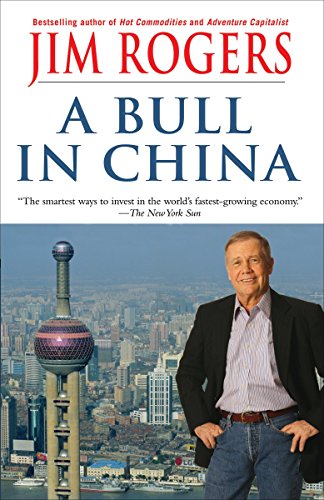I have to admit: I’m something of a Jim Rogers fan. I’ve read all of his books. I watch every one of his appearances on TV, and I study his career and investments extremely closely.
In a world where talking heads and b-school economists blather on in flowery finance-speak that doesn’t make a lick of sense, Jim Rogers seems to always speak in a clear, simple and easy to understand manner.
 Hot Commodities: How A...
Best Price: $1.25
Buy New $8.95
(as of 01:40 UTC - Details)
Hot Commodities: How A...
Best Price: $1.25
Buy New $8.95
(as of 01:40 UTC - Details)
He speaks the language of commodities.
And while I always do my own due-diligence, I put a lot of stock in what he says — sometimes literally.
Even though I know the commodity train is still running, sometimes it’s nice to put my ear to the tracks and hear Jim Rogers saying the bull-market is going to roll on — the same things I’ve independently verified for myself.
For instance, I hear lots of people saying that while commodities have had a nice run, the bull market in “stuff” is nearing its end. That begs the question: how long can a commodity bull market last?
 A Bull in China: Inves...
Best Price: $3.50
Buy New $9.57
(as of 11:55 UTC - Details)
A Bull in China: Inves...
Best Price: $3.50
Buy New $9.57
(as of 11:55 UTC - Details)
It’s a valid and important question.
I’m a commodity investor, but not for sentimental reasons. As much as I value gold as a hedge against inflation, or oil’s ability to make my car go vroom — I invest in commodities for fundamental reasons — largely because I believe they are still cheap and undervalued from a historical perspective.
So, back to the question at hand. How long can a commodity run last?
Jim Rogers answers that very question in his 2004 book Hot Commodities. Specifically, he references a study by Legg Mason — which found that the average commodity bull-run lasts between 17 and 18 years. The study also revealed that every commodity bull market in the last 130 years has coincided with a bear market in stocks.




